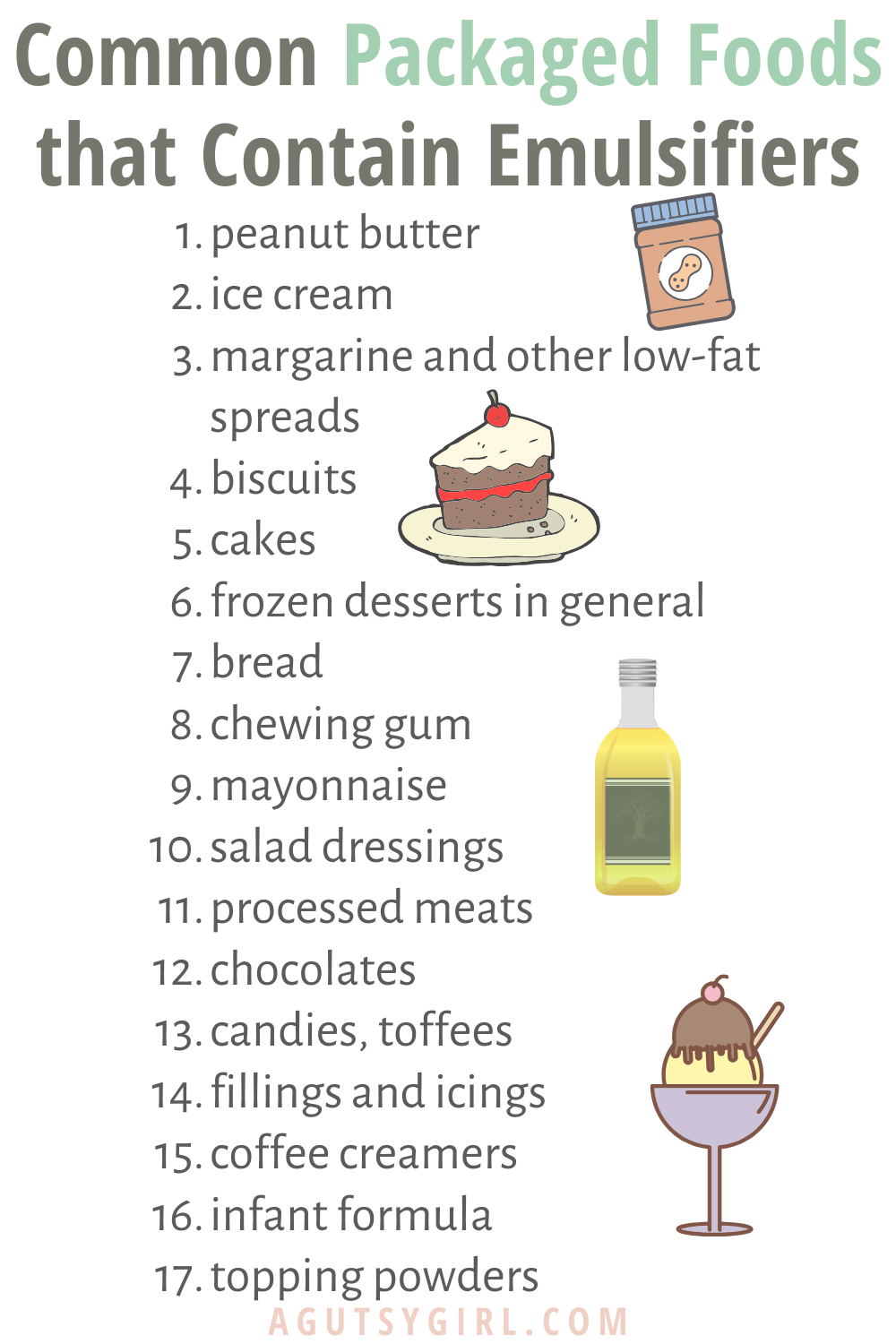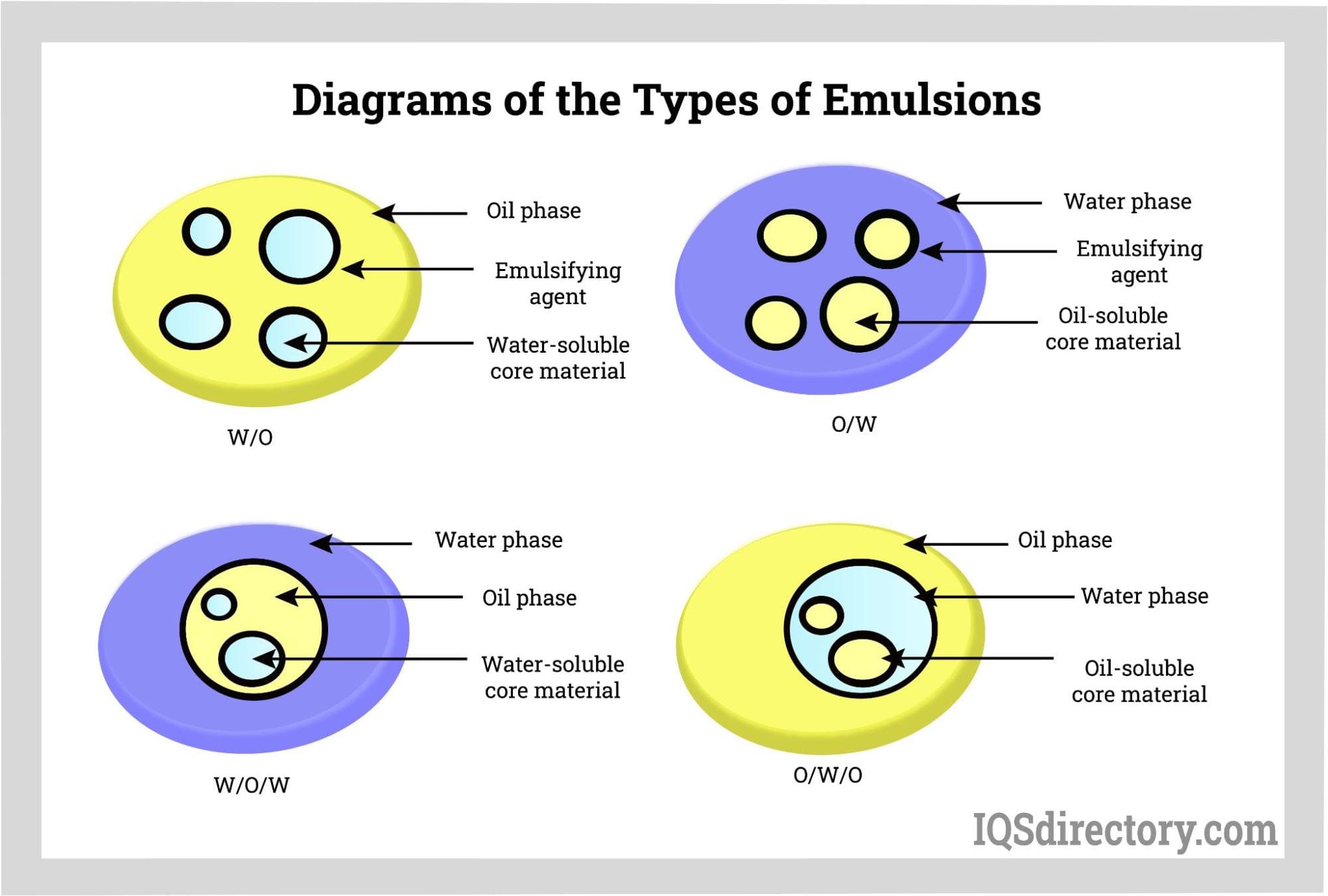What Makes Emulsifiers Essential in Processed Foods?
What Makes Emulsifiers Essential in Processed Foods?
Blog Article
The Science Behind Emulsifiers and Their Significance in Modern Manufacturing
Emulsifiers play an essential function in modern production, acting as the unrecognized heroes that blend oil and water for a broad array of items. As consumer choices shift in the direction of cleaner labels, the need for ingenious emulsifiers is growing.
What Are Emulsifiers?
Emulsifiers are important agents in the globe of food and item manufacturing, acting as the adhesive that binds two otherwise immiscible liquids, like oil and water. Typical instances include lecithin discovered in egg yolks and soybeans, and mono- and diglycerides made use of in various refined foods.

When you whip up a salad dressing or indulge in a creamy dessert, emulsifiers help keep that best texture. Without emulsifiers, many foods would separate, leading to undesirable textures and tastes.
The Chemistry of Emulsification
When you blend oil and water, you could see they do not mix easily; that's where the chemistry of emulsification enters play. Emulsification happens when small droplets of one liquid disperse in another, developing a steady combination. This takes place due to the fact that oil and water are immiscible because of their varying polarities-- water is polar while oil is non-polar. To overcome this difficulty, emulsifiers are used.
When you add an emulsifier, its molecules place themselves at the oil-water user interface, reducing surface area tension and permitting the droplets to mix. The emulsifier develops a safety layer around each bead, avoiding them from integrating back into separate layers.
Kinds Of Emulsifiers
Various types of emulsifiers play crucial roles in supporting mixtures of oil and water. Natural emulsifiers, like lecithin from egg yolks or soy, are derived from plants and animals, making them preferred in food items.
On the various other hand, artificial emulsifiers, such as mono- and diglycerides, are chemically crafted to boost stability and service life. They're generally used in processed foods and aesthetic products.
Furthermore, you could discover non-ionic, anionic, and cationic emulsifiers, each with special homes that affect their efficiency. Non-ionic emulsifiers, for instance, job well in a vast array of pH degrees, while anionic emulsifiers often tend to carry out much better in alkaline conditions. Understanding these types can help you pick the right emulsifier for your details application.
Devices of Solution Formation
Comprehending how emulsions create is vital for creating secure blends of oil and water. Emulsions happen when you spread small droplets of one fluid into one more immiscible fluid, such as oil in water. This procedure calls for energy, often provided with frustration or blending. When you present an emulsifier, it lowers the surface area stress between the two fluids, permitting them to blend more quickly.
The emulsifier particles have a hydrophilic (water-attracting) head and a hydrophobic (oil-attracting) tail. When you include an emulsifier, these particles prepare themselves at the oil-water user interface.
Applications of Emulsifiers in Numerous Industries
Emulsifiers play a crucial function throughout various industries, making your preferred foods smoother and much more satisfying. In cosmetics, they boost product structure and stability, guaranteeing a pleasant application experience. Plus, in pharmaceuticals, they assist supply necessary components successfully, improving total efficacy.
Food Market Makes Use Of
While you could not recognize it, emulsifiers play a vital role in the food industry, boosting the appearance, security, and rack life of lots of items. In baked goods, emulsifiers improve dough handling and maintain wetness, resulting in a far better structure and expanded freshness. By ensuring uniformity and high quality, emulsifiers are considerable to supplying the scrumptious items you take pleasure in every day, making them a vital component in contemporary food manufacturing.
Cosmetic Formulations Advantages
When it involves aesthetic formulations, emulsifiers are crucial for producing products that feel lavish and do efficiently. They assist mix oil and water, ensuring a smooth and steady uniformity in lotions, explanation lotions, and products. You'll observe that emulsifiers boost item stability, protecting against splitting up and extending rack life. This suggests you can appreciate your favored cream without stressing over it going poor also quickly. Furthermore, emulsifiers boost the application experience, enabling even circulation and better absorption into the skin. By utilizing emulsifiers, you also attain an even more appealing appearance, making your cosmetics feel fascinating on your skin. Overall, emulsifiers play a crucial role in supplying top notch cosmetic items that meet your elegance needs.
Drug Applications Review
In the pharmaceutical sector, emulsifiers are vital for formulating efficient medicines. You'll locate emulsifiers in different dosage types, like creams, lotions, and liquid suspensions, enhancing the bioavailability of medicines.
The Impact of Emulsifiers on Item Top Quality

By guaranteeing steady emulsions, you minimize the threat of spoilage and extend service life, ultimately saving you money and time. You'll also discover that emulsifiers can enhance the bioavailability of active ingredients in your products, making them a lot more efficient for customers.
Moreover, they enable you to develop cutting-edge formulas that fulfill varied customer demands. Whether you're crafting a luscious clothing or an elegant lotion, emulsifiers are important for accomplishing the wanted outcomes. In other words, by recognizing and leveraging the influence of emulsifiers, you can substantially raise the quality of your products.
Future Fads in Emulsifier Growth
As the need for cleaner labels and sustainable items climbs, the development of brand-new emulsifiers is readied to progress significantly. You'll discover a shift in the direction of plant-based and all-natural emulsifiers, driven by customer choices for components that are eco-friendly and much less processed. Innovations in biotechnology will likely boost the capability and effectiveness of these emulsifiers, allowing manufacturers to develop steady formulations with less ingredients.
You could likewise see an increase in multifunctional emulsifiers that not just stabilize solutions however also enhance taste, structure, or dietary value. This trend might simplify component lists while improving item performance.
In addition, with developments in nanotechnology, emulsifiers could be crafted at the molecular degree to achieve extraordinary stability and performance. Emulsifiers. As you explore these fads, you'll find that the future of emulsifier growth is not practically capability, but additionally about accepting sustainability company website and openness in active ingredients
Regularly Asked Concerns
Are Emulsifiers Safe for Intake in Food Products?
Yes, emulsifiers are typically secure for consumption in food products. They've been extensively researched and authorized by food safety authorities, so you can appreciate your favored foods without worrying regarding their influence on your health.
Can Emulsifiers Be Derived From All-natural Resources?
Yes, you can derive emulsifiers from natural resources. Active ingredients like lecithin from egg yolks or soybeans and casein from milk are common. These natural emulsifiers aid maintain mixes without artificial ingredients, making them preferred in different items.

Just How Do Emulsifiers Affect Rack Life of Products?
Emulsifiers stabilize combinations, preventing splitting up and spoilage - Emulsifiers. By preserving harmony, they prolong items' service life, making sure quality and quality. You'll observe that emulsifiers help maintain your favored foods and cosmetics carrying out more than time
What Are Potential Adverse Effects of Emulsifiers?
You may experience digestive problems when consuming items with emulsifiers, as they can disrupt digestive tract microorganisms. Some studies recommend potential links to swelling or allergic reactions, but a lot more study is needed to fully comprehend these results.

Exist Alternatives to Standard Emulsifiers?
Yes, there are alternatives to standard emulsifiers. You can check out options like all-natural gums, starches, or lecithin. Each different offers special homes, so experiment to locate what jobs best for your specific application.
Report this page